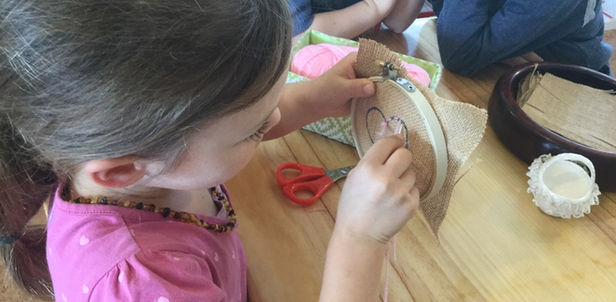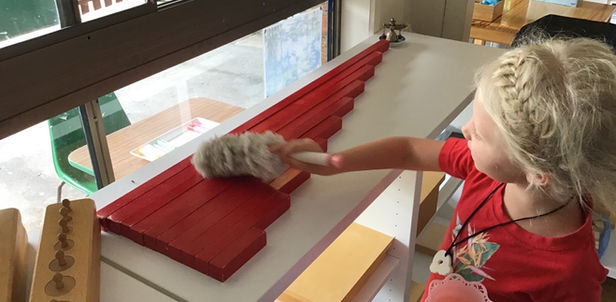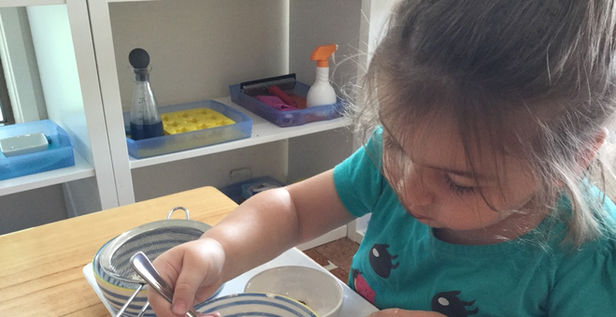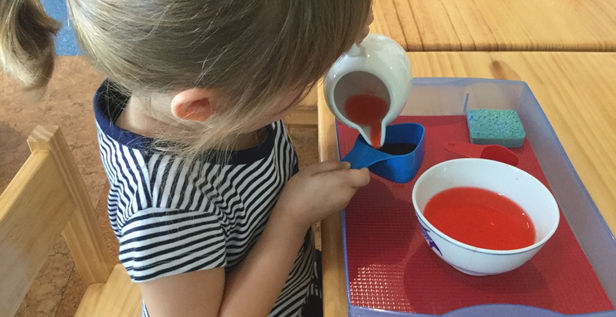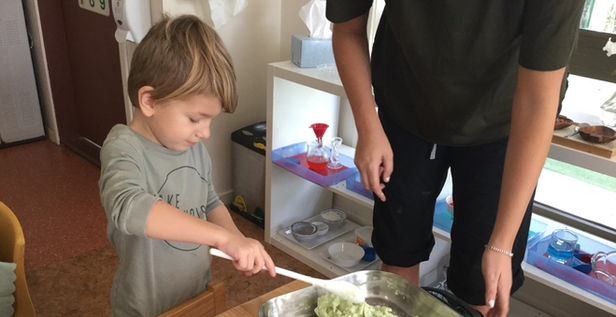
“Let your child's true colours shine”
CALL US: 0437 900 305
Practical Life
What is it?
Practical life activities are purposeful tasks that simulate the activities involved in everyday life. Children see these activities happening around them every day. They generally desire to have the ability, independence and 'importance' to be able to accomplish such tasks. As they become more capable, they are able to participate and contribute to their community, and their self-esteem grows.
Benefits of practical life activities include:
-
Building concentration
-
Independence
-
Developing fine motor skills and coordination
-
Learning how to organise, sequence and order an activity
-
Practicing problem-solving skills
-
Honing attention to detail
-
Conferring a sense of responsibility
-
Arousing a sense of being and belonging
Skills are initially isolated to allow greater chance of mastery. They can later be combined into more complex tasks that give greater in-built rewards.
Areas of Practical Life
Fine motor skills are essential for self care, play and later academic skills.
Children with good fine motor skills can perform tasks more quickly and with better outcomes.
It is very important for little hands to develop dexterity and strength.
Self-care is an essential component to becoming independent.
There is a lot involved, including:
-
Washing
-
Toileting
-
Dressing
-
Grooming
-
Eating
-
Hygienic Practices
And all of this is generally expected by the time a child starts school!
Young children love to be helpful and contribute to their community. They can easily learn how to interact with their environment with love and respect. This includes their immediate environment (e.g. classroom, home) and the broader environment.
Food preparation activities are commonly a favourite among children.
They are great for developing fine motor skills, as well as planning and organisational skills. Skills are first isolated and later combined to allow children to independently make recipes.























